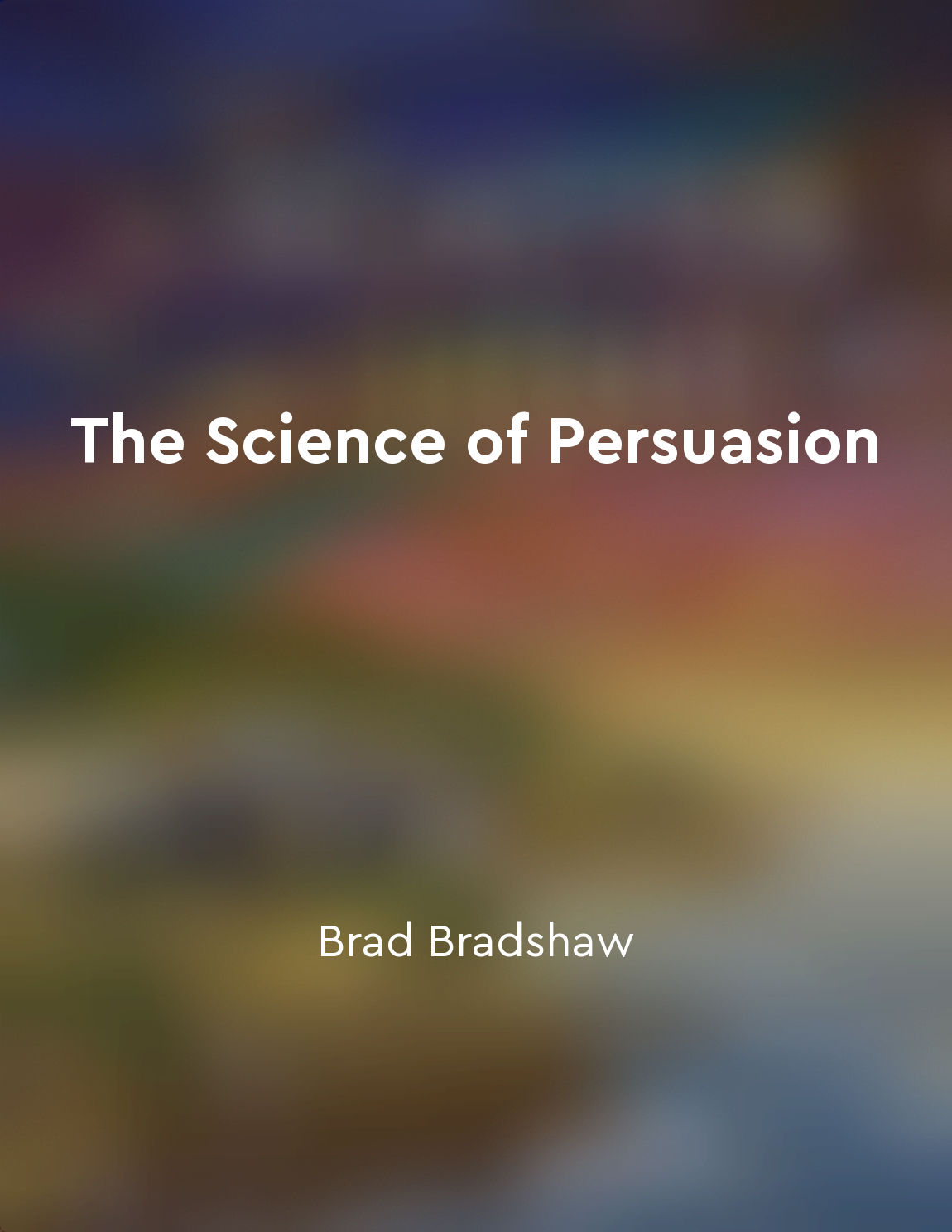Audio available in app
Using questioning techniques to guide persuasion conversations from "summary" of Técnicas Proibidas de Persuasão, Manipulação E Influència Usando Padrões de Linguagem E de Técnicas de Pnl (2a Edição) by Steve Allen
When engaging in persuasion conversations, it is essential to utilize questioning techniques as a strategic tool to guide the direction of the interaction. By asking thought-provoking questions, the persuader can lead the other party towards a desired outcome without appearing forceful or manipulative. Questions have the power to subtly influence the thoughts and decisions of the individual being persuaded, as they prompt them to consider different perspectives and possibilities. By framing questions in a strategic manner, the persuader can control the flow of the conversation and steer it towards a specific goal. Open-ended questions, for example, encourage the other party to elaborate on their thoughts and feelings, providing valuable insight that can be used to tailor the persuasive approach. On the other hand, closed-ended questions can be used to guide the conversation towards a predetermined conclusion, subtly nudging the individual towards a particular decision. Moreover, by asking questions that highlight the benefits of the desired outcome, the persuader can appeal to the other party's self-interest and motivations. This technique leverages the psychological principle of self-interest, as individuals are more likely to be persuaded when they perceive a direct personal benefit. By highlighting how the desired outcome aligns with the other party's goals or values, the persuader can increase the likelihood of a successful persuasion attempt. Additionally, asking reflective questions can encourage the other party to introspect and evaluate their own beliefs and behaviors. This self-reflection can trigger cognitive dissonance, creating a sense of discomfort that motivates the individual to reconcile any inconsistencies between their current stance and the desired outcome. By guiding the other party through this process of self-examination, the persuader can gently nudge them towards a more receptive mindset.- The strategic use of questioning techniques is a powerful tool in persuasion conversations. By framing questions thoughtfully, highlighting benefits, and encouraging self-reflection, the persuader can guide the interaction towards a desired outcome while maintaining a sense of respect and understanding. Mastering the art of questioning is essential for anyone seeking to influence others effectively and ethically.
Similar Posts

Understanding manipulation is a defense
When it comes to protecting yourself against manipulation, knowledge is power. By understanding how manipulation works and the ...
Discrimination is the unjust treatment of individuals based on their group membership
Discrimination is the unjust treatment of individuals based on their group membership. This concept lies at the heart of social...

Be mindful of your body language
It is crucial to pay attention to your body language when communicating with others. Your nonverbal cues can speak volumes abou...
Develop a growth mindset to overcome obstacles and achieve success
As we navigate the challenging landscape of selling, it's essential to cultivate a growth mindset that propels us forward, help...
Creating a sense of urgency can increase the likelihood of compliance
Consider the power of urgency in influencing compliance. When individuals feel a sense of urgency, they are more likely to act ...
Seek feedback from others to improve your negotiation skills
One of the most effective ways to enhance your negotiation skills is to solicit feedback from others. By seeking input from tho...
Establish credibility with others
Establishing credibility with others is crucial when it comes to influencing them. People are more likely to say "Yes" to someo...

Social proof influences decisionmaking
The idea that social proof plays a significant role in influencing decision-making may seem intuitive, but its impact is profou...
Acknowledging objections and addressing them can help you make a stronger case
When you are trying to persuade someone, it is essential to anticipate and address any objections they may have. By acknowledgi...

Body language interpretation
Body language interpretation involves the ability to read and understand nonverbal cues that individuals display through their ...


